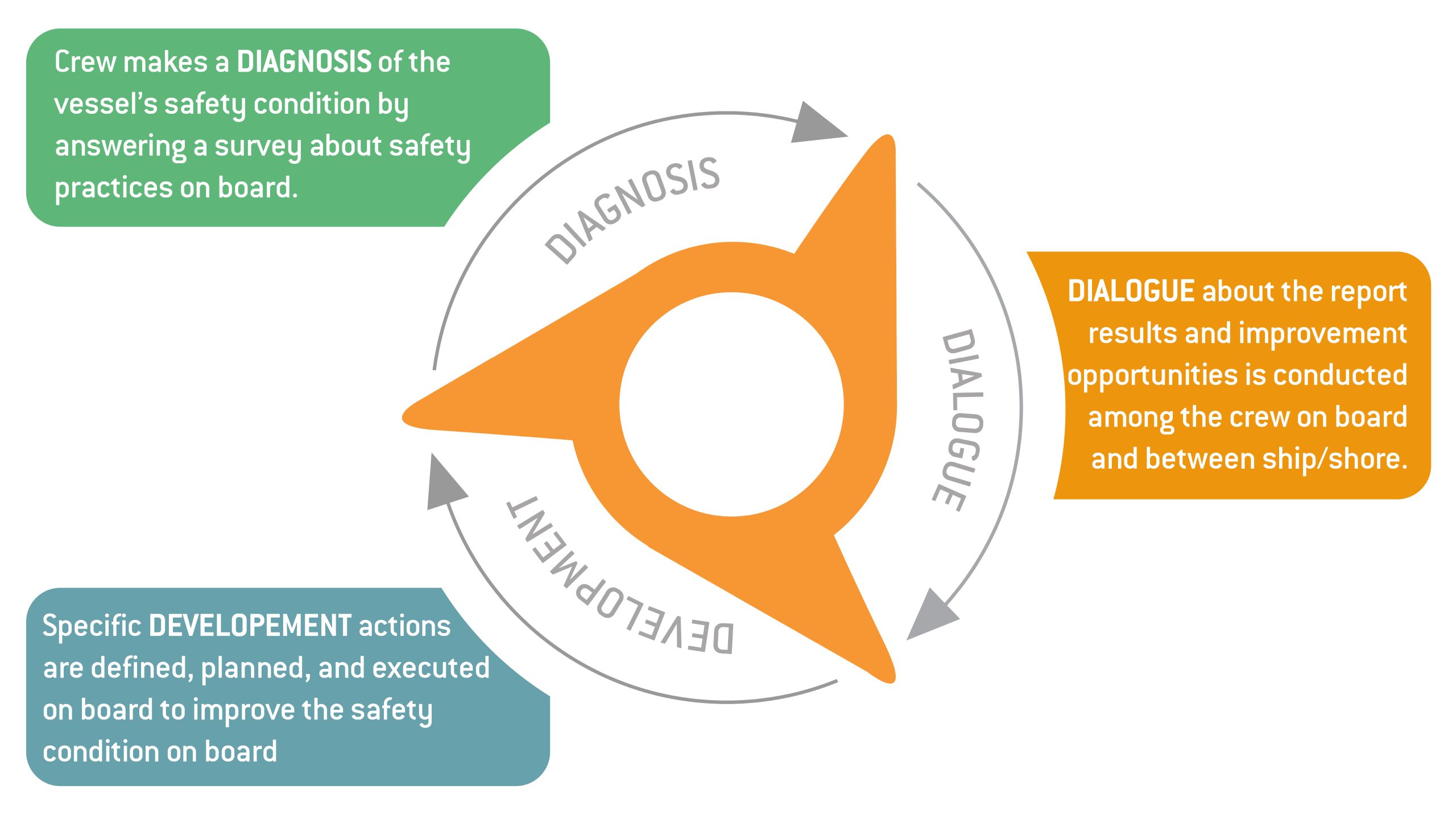In a 20-year journey of working with shipping organisations all around the globe, what Green-Jakobsen A/S has seen is the striving for safety excellence, an embedded value for many shipping companies.
However, to excel in safety and achieve a strong and proactive safety culture requires us to look at our ways of thinking, reviewing, and evaluating our safety performance, as well as overall human performance. Key Performance Indicators are used to provide a snapshot of safety performance, but when we talk to people, on board and ashore, we often observe a different picture of the actual safety culture. The reason behind this is that most companies tend to focus solely on the result of the performance without shedding light on how they reached those results and the potential risks involved.
Continuous formal and informal reviews of performance are important prerequisites to ensure better safety performance both on board and ashore. In this respect, the rounds of reviewing performance, or as we call them, performance wheels, are instrumental in driving performance to a higher level.
It is the journey that matters, not the destination – Odyssey
Performance wheels – Seeing performance a process, not an end-product
Performance improves when companies review performance, not just by looking at the results, but also the working processes. Focusing on the process rather than solely on the performance result means that attention is given to the journey, to the actions and efforts of people, and to what people experience while they try to reach the set goals and desired outcomes. Performance is a journey, and with the performance wheel process, companies and the crew have a pathway for continuous reflection, discussion, and improvement.

What drives the performance wheel?
With our extensive experience in performance management and development, we have identified that performance wheels can be initiated and driven by following these key principles:
• Consistency
If we do not review our performance on a continuous basis, we are not able to identify what our improvement needs are. The value of the performance wheel process is manifold, as it encompasses more than just the actual findings. Reviewing performance allows individuals and teams to reflect, discuss, and learn. Unless this is done frequently and persistently, people will forget details and perspectives, and thereby avoid relating their inputs to the actual work. Forgetfulness, the ‘sister’ of negligence, is the enemy of excellence because the human brain tends over time – if not reminded – to forget and distort our view of how we best perform our tasks.
• Relevance
On far too many occasions, we see that the shipping companies’ offices try to control everything that happens on board from the desks ashore. The result is a multitude of readings, campaigns, and other fleet-wide initiatives that do not relate to what most vessels and the crew are experiencing or dealing with. Those responsible for evaluating the current safety performance of each specific vessel must always be the seafarers themselves. Thus, we must build an open and trusting working environment that enables the seafarers to express their honest opinions about the present safety performance on board. At the end of the day, only the crew members know what is really happening on board. They are the most relevant people to review their perception of the quality of safety, work processes, and overall performance on board.
• Openness
“To question oneself and others is the highest human excellence,” said Socrates, so everyone must be prepared to accept review. The dialogue must be without prejudice, fear, or blame for weaknesses, questions, ideas, or even errors, which is important for the crew to jointly decide on the improvements to be implemented. Besides, dialogues should also highlight the strengths to build on. Those components are signs that the organisation is offering conditions of psychological safety in the workplace.
• Inclusion
In addition to openness, inclusion is an essential component of ensuring psychological safety. We know from the SAFETY DELTATM survey statistics that senior officers generally perceive the safety performance on board to be better than the junior officers and ratings, indicating that they do not have a full picture of the crew’s safety perception, and therefore communicating an incomplete picture back to the office. Furthermore, not reacting proactively to improve areas within the rest of the crew’s concerns. Having an open dialogue that involves all crew members and the leaders is crucial. The bottom-up feedback and bias-free involvement of all crew members—regardless of rank, nationality, or gender—ensures that reflections are holistic, that dialogues are reaching out to all parties, and that learning has the right foundation.
Applying the principles
The above principles and the performance wheel concept are incorporated in Green-Jakobsen’s SAFETY DELTATM where reflection, discussion, and learning are achieved by a three-phase cycle of Diagnosis or reviewing current performance -> Dialogue or engaging crew in open dialogues -> Development or actively initiating improvement initiatives.
Simply put, the performance wheel isn’t just about numbers — it’s about the continuous process of getting better. By regularly checking in, direct attention to what matters on board, being open to feedback, and including everyone, organisations can create a culture of constant improvement.
It’s like seeing performance as a journey, not just a goal. This mindset helps teams work together, learn from mistakes, and keep getting better over time. With tools like the performance wheel, companies can stay focused and keep improving at what they do best.































































